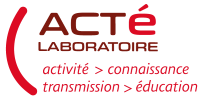Maxence Pithon

Doctoral student
Key words
- Interprofessional education
- Advanced practice nurses
- Family practice
- Collective
Publications
Professionnal address
UFR Médecine et Professions paramédicales
Site Dunant
28 Pl. Henri Dunant
63000 CLERMONT-FERRAND
Maxence.Pithon@uca.fr

